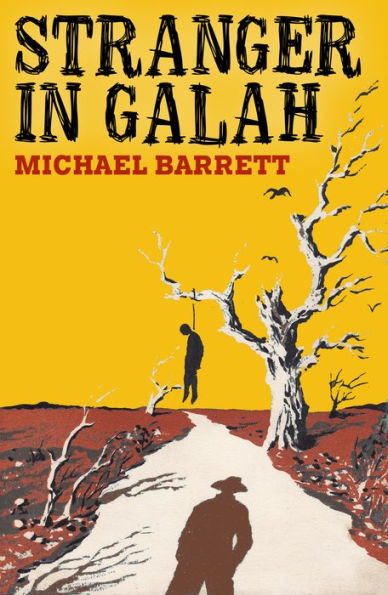They drove on. The atmosphere began to
oppress Deane more heavily. Nothing in sight, bare earth and the groups of
cattle standing, motionless. The harsh sun poured down over the plain, a white
ball of light. When they were close he saw the beasts were mere skeletons,
filthy hides draped over their scarecrow backs. They stood gaunt, legs splayed
out, unmoving: specter-like symbols of doom and destruction. Only their horns
were smooth and unchanged; their great eyes had a glazed, vacant stare. They did
not see, they did not hear the car pass. They just stood, trance-like. The
woman glanced at Deane. She stopped the car, switched off the engine. Then the silence
was something frightening. Absolute, utter silence over the vast paddock and
desolate earth. No wind, no movement, no life. The dying animals with the empty
eyes. Time stood still, waiting for death. Deane shifted uneasily. One of the
cattle nearby went down with slow finality into that long-promised death. It
sank to its knees, rolled over with the same complete silence to the bare
earth. A nightmare, death-watch quality hung over the scene.
Here we have an “Outback Western” or “Bush Western” or
more simply a novel of the Australian Frontier.
Written in 1958 the offered passage tells the power of
one aspect of this novel—it has the pervasive punishing drought down pat. The
baking heat, the red grit in the teeth, all hold center as characters in the
tale.
Also strong, the opening—I will not give it away, but
it calls to mind the ruthlessness of the opening of Elmore Leonard’s superior Valdez
is Coming.
The opening third held this reader in thrall and then…well,
then it seems to spin its wheels in the femme fatale/noir land of the Fawcett
Gold Medal Line circa 1950s.
Yes, there were superior authors working in those
hallowed paperbacks, but much, if one is honest, is merely rote pushing of sweaty
passions around pat checkerboards of repetitive plots.
This plot deals much with race and to do so portrays some
characters as callous bigots, which is necessary but…even our protagonist does not
come off much better.
There is something patronizing and dismissively
paternalistic about the novel. If it had hewed to its opening toughness, it
might have weathered these difficulties better, but as it becomes more formulaic
the patronizing becomes merely lazy and possibly indicative of true attitudes
which is…a bit uncomfortable.
In short, I thought I had an undiscovered classic in my
hands for the first two thirds of the novel and then…well, there is still skill
here. There is power.
A power that fails in the end for this reader.





No comments:
Post a Comment
Note: Only a member of this blog may post a comment.